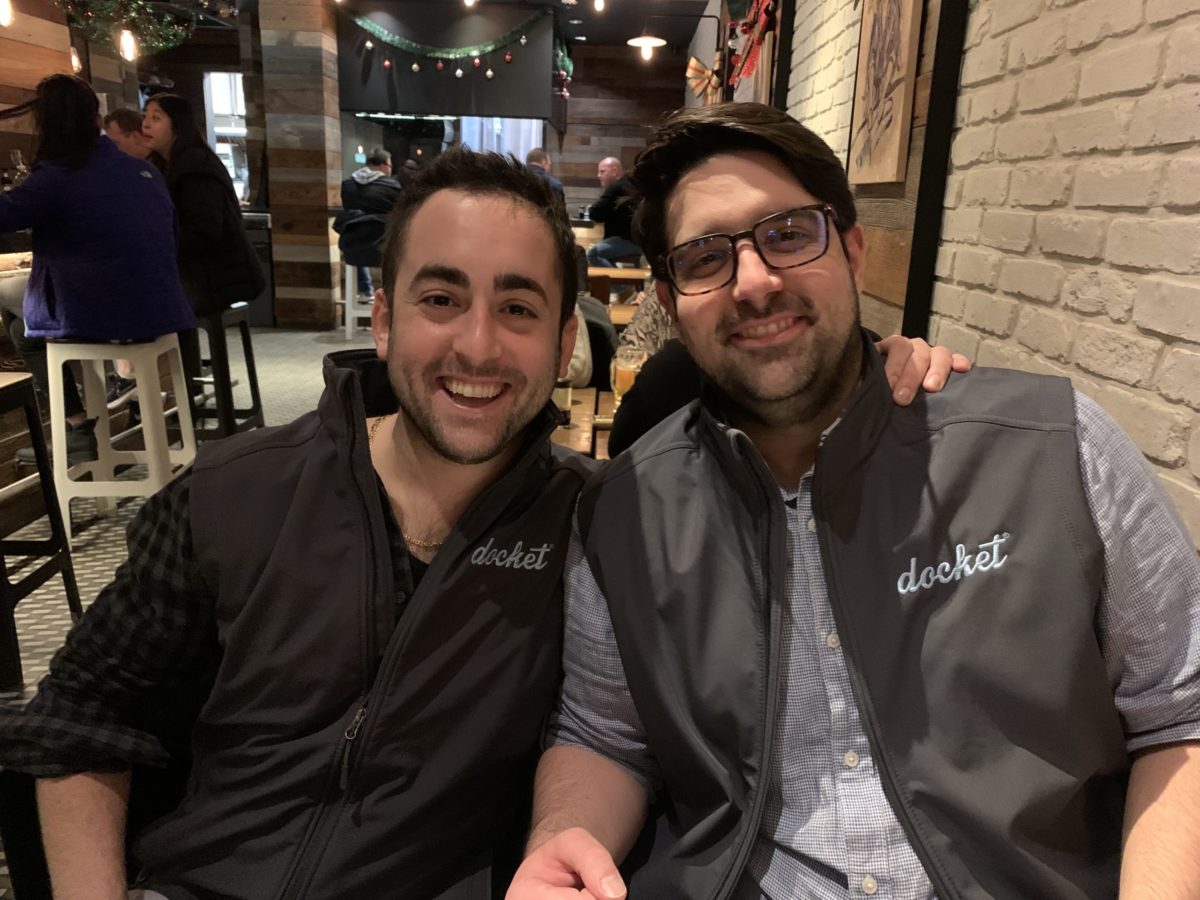When Michael Perretta and Nathan Scott began working together on a digital immunization record app, they had no idea how urgent technology in the vaccine space would come to be.
The pair met as roommates at George Washington University in DC, and in 2016 started an app that allowed users to aggregate health data on their phones. In 2017, the pair won $75,000 in the healthtech-focused Move Health Data Forward challenge, but decided to go another route with the technology. With more money and some stakeholder advice to venture into the immunization space, the pair began work on what’s now known as Docket.
In 2019, Docket began a pilot with the state of Utah to create a digitized immunization record that could be used for students heading back to K-12 public schools, college students needing to provide their records for a new semester, or people who needed proof of vaccination to travel. It was also the year the US experienced a measles outbreak, and the need for proof of vaccination spiked.
“We started to think, ‘Oh wow, this could end up being sort of a measles app amid the outbreak,” Perretta told Technical.ly. “We didn’t know it would be so critical.”
Docket, which is free for users, accesses a state’s immunization records to keep track of a user’s vaccines and upcoming due dates. It can remind a user or a child’s parent when its time for the yearly flu shot or a routine booster, and in some cases, like Docket client New Jersey, states can integrate Smart Health Cards — created by the public-private public health coalition VCI — which allows your vaccine records to be verified and checked with a simple QR code. The app grew organically for about a year, the duo said.
Fast forward to today, about a year after COVID-19 vaccines were introduced to the general public. States working with Docket can now integrate COVID-19 vaccine data into the app as well, and use it to show proof of vaccination where needed. That’s useful for, say, New Jersey residents traveling to Pennsylvania, or Pennsylvania residents who got their shots in New Jersey.

Scott, the company’s CTO, said until recently, each state only had its own separate vaccine records; the City of Philadelphia also has its own. In the last few years, the CDC developed IZ Gateway, an IT infrastructure system that allows for the exchange of immunization data between individual state’s systems. Each state still maintains its own systems, but there’s now a way for the states to share data more easily with each other.
Docket works directly with health departments to integrate the data, which presents its own interesting technical challenges, Scott said. Most of the vaccine registries are at least 30 years old, and the data points vary, as they are mostly filled in by doctors. Docket’s tech stack is built on Ruby on Rails with AWS and the app is written in TypeScripts with React Native.
“Our biggest challenge is data quality, as different states have different reporting requirements,” Scott said. “Some states are like, ‘We have ZIP codes, or phone numbers,’ so we spend time finding unique pieces of data.”
For now, the company is made up of Scott, who lives in Alexandria, Virginia, and Perretta, who lives in New York and is the company’s CEO. They also work with a handful of contracted technologists. While the concept for the app has been around for years, the pandemic added an urgency to its work.
“We started working with Utah in 2019 after really starting work on the company in 2017. It took us a few years for our first state to come on board,” Perretta said. “Without the pandemic, there was less urgency behind us. And now, we’d love to work with anyone who wants to work with us.”







